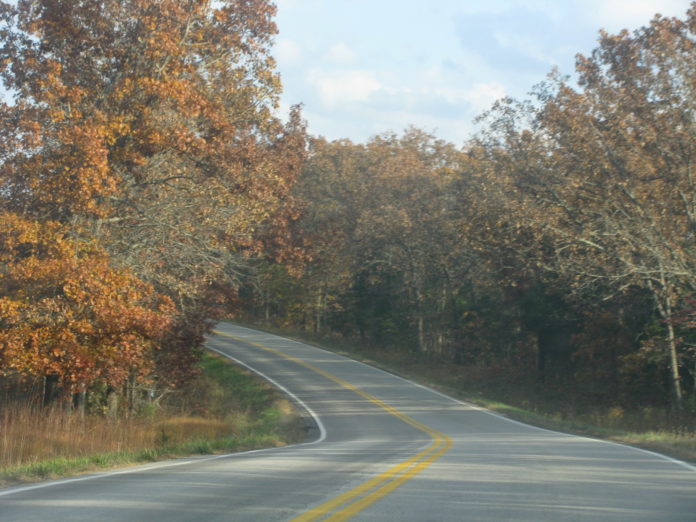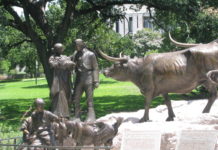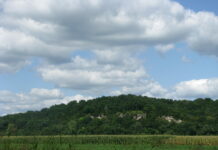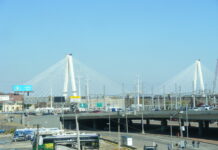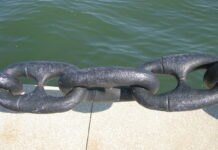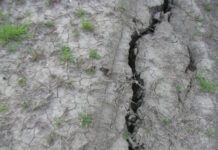Photo credit: DiasporaEngager (www.DiasporaEngager.com).
Haiti is in chaos after a massive prison break and gangs calling for the resignation of its prime minister. How did it get here?
Source: Al Jazeera —
Haiti’s government declared a 72-hour state of emergency on Sunday after armed gang members stormed the Caribbean nation’s two biggest prisons, freeing more than 4,700 inmates.
In capital Port-au-Prince, corpses lie in neighbourhoods and burning tyres serve as roadblocks.
Meanwhile, the whereabouts of Prime Minister Ariel Henry are unknown, after he visited Kenya last week. Finance Minister Patrick Boivert, as acting prime minister, announced the curfew.
How did Haiti get to this point?
At least 12 people have been reported dead, four of them being police officers.
Gangs have targeted police stations including the national penitentiary, the Toussaint Louverture International Airport, and even the national soccer stadium. A second prison in Port-au-Prince containing around 1,400 inmates was also overrun.
Yet the violence has roots in turbulent political history that has shaped — and continues to shape — Haiti.
1959: A failed coup by military officials and foreigners to overthrow President Francois “Papa Doc” Duvalier, led him to create his secret police force, the Tonton Macoutes, to serve as a counterweight to the army.
1990s: Former parish priest Jean-Bertrand Aristide, a left-wing champion of the poor, won Haiti’s first free election in 1990. He was removed in a coup in 1991 to be replaced by Rene Preval.
2000: In the early 2000s, Aristide formed his own armed gangs known as the Chimeres, serving as a protection racket and an instrument of political opposition. In 2001, Aristide was sworn in as president again.
2004: A prominent gang, known as the Cannibal Army at the time, also called the Artibonite Resistance Front, seized control of Gonaives, a commune in northern Haiti on February 5. Later that month, they took control of the country’s second-biggest city, Cap-Haitien. As the gang attacked Port-au-Prince, Aristide resigned, amid allegations of French and US support for the coup plotters because of Aristide’s call for reparations — claims that Paris and Washington have denied.
2010: A catastrophic earthquake killed between 100,000 and 300,000 people, according to various estimates. The earthquake also led to former gang members escaping prison and taking over makeshift camps, originally made for earthquake victims. Gender-based violence perpetrated by gangs also began to rise.
2011-14: Michel Martelly won the presidential elections. But amid mounting anger over corruption and poverty, large anti-government protests broke out against his government.
2017: Banana exporter-turned-politician Jovenel Moise was declared the winner of the 2016 presidential election.
2018: Members of the Moise government allegedly helped gangs commit massacres by providing them with money, weapons and government vehicles used in attacks on the capital.
2019: Due to a political gridlock and unrest, Haiti failed to hold new elections, leading to Moise steadily amassing power.
2021: Thousands protested on the streets calling for Moise’s resignation, chanting “No to dictatorship”. Moise was assassinated in July by Colombian mercenaries with unknown paymasters. Ariel Henry was sworn in as prime minister with the help of international backing after Moise’s assassination.
How much power do gangs have in Haiti?
Gangs hold considerable influence in Haiti. Until recently, they controlled around 60 percent of the capital, and United Nations (UN) officials say that number has grown to 80 percent. Around 200 gangs exist in Haiti, and 23 dominant ones are believed to be operating in the metropolitan capital.
Firearms – typically smuggled from the United States, alongside ransom payments to kidnappers – have lent financial independence to gangs. An underfunded and under-resourced police department has also allowed the gangs to amass power that the state has struggled to match.
“Present-day gangs enjoy a much higher degree of military capacity than those a decade ago,” according to a report by the Global Initiative against Transnational Organized Crime, a non-governmental organisation headquartered in Geneva. “This has largely been driven by the gangs’ ability to acquire high-caliber weapons.”
A 2023 UN report stated that recovered weapons destined for Haitian ports include “.50 caliber sniper rifles, .308 rifles, and even belt-fed machine guns”.
Since the recent outbreak of violence, around 15,000 people have fled the capital, as estimated by the International Organization for Migration. Many of the people who escaped were already previously displaced and in makeshift camps in schools, hospitals and public squares.
In 2023 alone, around 200,000 residents fled the kidnappings, looting and sexual violence related to gangs. Around 3,000 people were killed as a result of gang violence and 1,500 were kidnapped for ransom.
Gang violence in Haiti
The Haitian government has declared a state of emergency after armed gangs tried to seize control of Haiti’s main international airport. Police stations and the national football stadium were also targets of the violence.
Why did the violence escalate?
Analysts believe the escalating violence is aimed at ousting Henry — it has coincided with the prime minister’s visit to Kenya, where he has pushed for the UN-backed deployment of an international force to help fight the gangs.
Henry had repeatedly requested for international intervention in Haiti and in July 2023, Kenya stepped up and volunteered to lead an international force to combat the gang violence. Kenya promised to “deploy a contingent of 1,000 police officers to help train and assist Haitian police”.
In January, a Kenyan court blocked the deployment of that force, but during his visit to Nairobi, Henry inked a pact with Kenyan President William Ruto for a reciprocal deal that they suggested could allow the East African nation to send soldiers to Haiti.
Separately, on October 2, 2023, the UN adopted a resolution authorising the creation and year-long deployment of a “Multinational Security Support” (MSS) mission to reinforce the Haitian police, restore security and protect critical infrastructure. The Bahamas, Bangladesh, Barbados, Benin and Chad formally pledged troops to this force, and less than $11m was deposited in its fund.
However, a date for when the troops will be deployed is still not set.
Could gangs overthrow the government?
Gangs already act as de facto authorities in parts of the country.
Gang leaders — Jimmy “Barbecue” Cherizier is the most prominent among them — want to bring down Henry. The country has failed to hold parliamentary and general elections since 2019 and there are no elected officials. The latest round of attacks also came amid Henry’s pledge to hold long-awaited general elections by mid-2025.
Cherizier is a former elite police officer, now considered one of Haiti’s most powerful gang leaders. He announced that he would try and capture the country’s police chief and government ministers.
Last summer, Cherizier urged Haitians to mobilise against the government, adding that he would fight any international armed force if they committed abuses.
Cherizer leads a gang federation known as G9 Family and Allies, and he has previously launched powerful attacks that have crippled the country. In late 2022, he seized control of an area surrounding a key fuel terminal in the capital of Port-au-Prince for almost two months.
How is the world reacting?
The US Embassy in Haiti released a statement on Sunday, urging US citizens in Haiti to depart from the country “as soon as possible”. The embassy also said that it will operate at limited capacity starting Monday and all visa appointments from Monday to Wednesday have been cancelled.
The neighbouring Bahamas said it had called most of its embassy staff back, leaving just its charge d’affaires and two security attaches, while Mexico said its nationals should limit themselves to essential transit and stock up on water, fuel and nonperishables.
Haiti shares the island of Hispaniola with the Dominican Republic, which last year deported tens of thousands of Haitians. The Dominican Republic announced on Monday that its defence minister was touring the border to supervise progress on a border fence, while the president ruled out opening refugee camps for Haitians in the country.
The security situation in Haiti has caused aid groups to pause their work in the country, according to the International Rescue Committee, which works with the groups.
Source: Al Jazeera
Also See
By Dr. Ron Daniels —
Haiti, our first Black Republic, is a virtual failed state where vicious gangs tied to the parasitical elite, and gangs with their own wannabe leaders or criminal kingpins control most of the Capital of Port Au Prince and much of the country. Ariel Henry, an unelected, illegitimate, and inept “Prime Minister” has a tenuous hold over what passes for a “government.”
The well-armed rampaging gangs are terrorizing the country utilizing kidnapping for ransom, extortion, trafficking in drugs and assaulting and raping women unchecked. They are attacking police stations and killing members of the National Police, attacking prisons, and releasing prisoners and attacking and killing each other over turf. They are also in deadly competition with each other to take over the government or at least emerge as the dominant force that will be the de facto government.
Haiti is on fire and as the people suffer and demand the resignation of an illegitimate Prime Minister, what is the posture of the U.S. government and the Core Group of nations and multilateral bodies? Unfortunately, tragically the U.S. is propping up a recalcitrant, illegitimate, shaky Henry regime despite massive opposition from the people. Rather than insisting that Henry relinquish the reins of power, the U.S. and its allies are negotiating with him and preparing to finance a Kenyan-led military force to “restore order.” The U.S. and its allies are arrogantly and blatantly ignoring rather than respecting and supporting the wishes of the Haitian people. We’ve seen this movie before. Unfortunately, even heads of state in the Caribbean, who should be good-faith facilitators, have recently acquiesced to negotiating with Henry rather than demanding his immediate departure from office.
Haiti is on fire. That’s the bad news. But the good news is that there is a remarkable, broad-based civil society movement involving hundreds of organizations and leaders from across the political spectrum who have boldly and courageously come forward to devise a plan, process and strategy to put out the fire, to extinguish the raging conflagration; firefighting freedom fighters committed to advancing a “Haitian Solution” to rescue the first Black Republic from what one leader has termed the “criminal enterprise” which is spreading death and destruction across the land. This powerful, people-based effort is called the Montana Accord Movement (MAM). These courageous leaders are determined to raise Haiti from the ashes to create a sustainable, people-based democracy.
The challenge is, our challenge as allies and friends of the First Black Republic is to persuade, demand, compel the U.S. government, the Core Group and our sisters and brothers from CARICOM to insist that Henry relinquish power immediately. Equally important, the U.S. and all external international players should immediately acknowledge and support the Montana Accord Movement plan, process and strategy as the way forward toward sustainable democracy and development in Haiti. To achieve this righteous outcome, we the people must rise-up to support the Montana Accord Movement to save Haiti. Let’s do it. #SaveHaiti, SupportMAM
Review the Montana Accord Plan Here
Source of original article: The Institute of the Black World 21st Century (ibw21.org).
The content of this article does not necessarily reflect the views or opinion of Global Diaspora News (www.GlobalDiasporaNews.com).
To submit your press release: (https://www.GlobalDiasporaNews.com/pr).
To advertise on Global Diaspora News: (www.GlobalDiasporaNews.com/ads).
Sign up to Global Diaspora News newsletter (https://www.GlobalDiasporaNews.com/newsletter/) to start receiving updates and opportunities directly in your email inbox for free.


